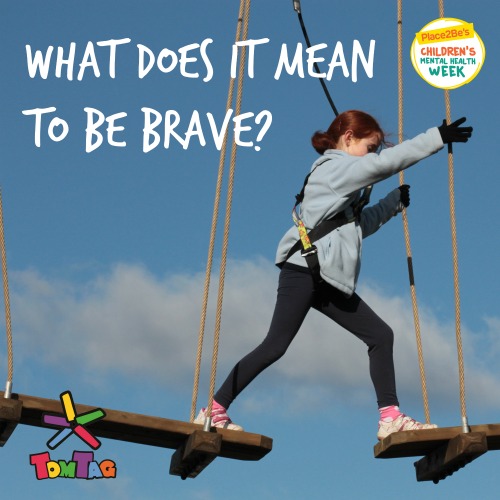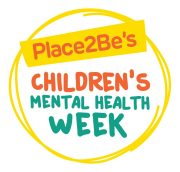
 Children’s Mental Health Week is run by the charity Place2Be, to focus on the importance of looking after our emotional well-being from an early age.
Children’s Mental Health Week is run by the charity Place2Be, to focus on the importance of looking after our emotional well-being from an early age.
Running from 3 – 9 February 2020, the theme this year is ‘Find your brave’.
Whilst autism itself it NOT a mental health condition, we do know that people with autism or a learning disability (or both) are more likely to experience mental health problems than the general population – and more likely to have it overlooked or ignored.
Helping your autistic child to ‘find their brave’ may take a little longer, need a bit more effort, patience and persuasion but with determination progress will be made and it can only have a positive affect on their mental health.
What does ‘finding your brave’ mean for a child with autism?
Bravery is different for every child and comes in all shapes and sizes. It’s not all about grand gestures, slaying dragons, high ropes or superheroes!
Being brave generally means facing something difficult or a situation you’re unsure, worried or scared about and going ahead anyway. If, like my son, your child has sensory processing issues, communication difficulties or an intolerance of uncertainty then simply managing and coping with daily life will mean calling upon their bravery resources pretty much every day.
Imagine all the things your child might be unsure or worried about. Is it going to school, visiting the hairdresser, sharing worries or asking for help?
It may also be something that appears small to us, such as trying a different food, taking a new route home from school or saying hello to grandma.
Over the next few days, we’ll share some ideas and techniques for supporting your child to find their brave. We’ll look at what it means to be brave, what holds us back and how to deal with those feelings that stop us. Finally we’ll talk about why it’s good to be brave and share some ideas for ways that TomTag can be used to help.
Let’s get started!
What is bravery?
Start by explaining to your child what bravery means and why being brave can make us feel good about ourselves.
Sometimes we need to be brave for big challenges but most of the time being brave means finding positive ways to deal with everyday difficulties and situations. It doesn’t mean that they have to deal with everything on their own. Let them know that it’s brave to ask for and accept help.
Bravery means something different for everyone. Remind your child that what’s brave for them might not feel brave for someone else.
Use examples from your own life to show times when you’ve had to be brave. It can help children to see that as adults we also have to face our fears in everyday life.
Next: What are you scared of?
What stops us being brave and why can being brave be so difficult? Helping your child understand what can hold us back and the feelings that can stop us being brave.

[…] that you’ve introduced the idea of what bravery means and why being brave can make us feel good (follow the link if you missed it), we look at helping your child understand what can hold us back […]
[…] introduced the idea of what bravery means and why being brave can make us feel good and looked at ways to help your child identify and understand their barriers to being brave (what […]
[…] Explain to your child what bravery means and how it relates to their life and their personal challenges – What is bravery? […]
[…] What is bravery? […]